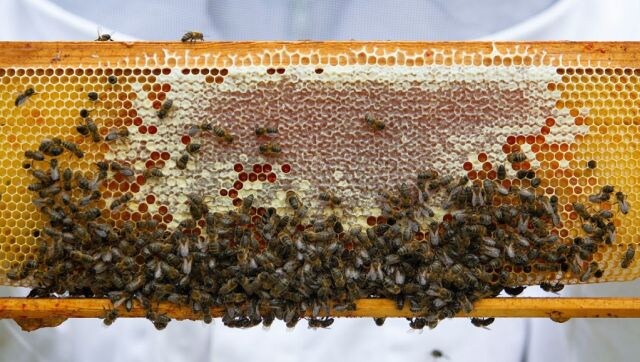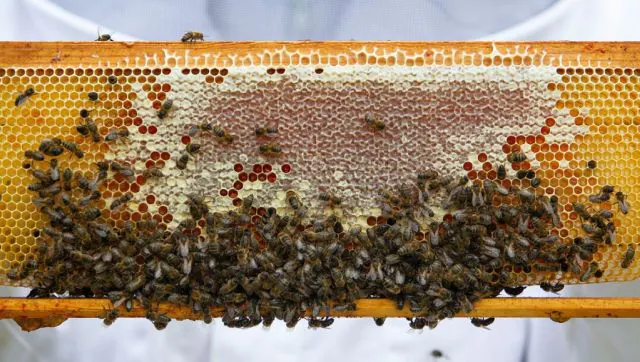Why over 10,000 bees ‘joining’ a protest in Chile’s Santigao has created such a buzz
[ad_1]
Beekeepers swarmed the presidential palace in the capital and set up around 60 hives in the area, demanding government help after a prolonged drought has ravaged the industry

Representational image. AFP
It’s buzzing in Chile!
Over 10,000 bees ‘joined’ a protest in front of Chile’s presidential palace in Santiago, according to local officials, with seven police officers stung during the demonstrations.
We take a look at the buzz-worthy news coming from the Latin American country concerning this very unique agitation.
The incident
On Monday, beekeepers swarmed the presidential palace in the capital and set up some 60 hives.
Passers-by were forced to duck and flee as bees escaped when police officers tried to move them.
Abejas en la Alameda, frente a La Moneda por protesta de apicultores. [Slowmo] pic.twitter.com/BqBUmHfHUy
— 8livier (@olivierhdezz) January 3, 2022
“It’s dangerous for the people who are allergic (to bees) because they can cause death,” one local was quoted as saying.
Seven national police officers, called Carabiniers, were stung trying to arrest the beekeepers and move the beehives out of the street, police officials said, and were taken to the hospital.
It was reported later that four of the beekeepers, who took part in the protests, have been arrested.
Why the protest?
The protesting beekeepers are demanding government reforms — improve honey prices or provide subsidies as a prolonged drought has negatively impacted their business.
They have asked to meet with President Sebastian Pinera to discuss their grievances.
One of the beekeepers, Jose Iturra, was quoted by Reuters as saying that the drought in the Colina commune north of Santiago was killing the local bee population.
“Bees are dying,” Iturra said, adding, “There would be no life if the bees die. That’s what we wanted to highlight with this demonstration.”
Chilean government speaks up
The Chile government acknowledged that the drought had affected the livelihood of beekeepers and said that they were trying to come up with ways to resolve the issue.
A representative for the ministry of agriculture in the Santiago region said the agency was also concerned about the effect the drought was having on the bees.
Dwindling bee numbers
It’s not Chile alone that is facing a problem of shortage of bees.
Droughts and rising temperatures from climate change have affected bee populations worldwide.
A 2020 study published in the journal Science found populations fell by around 50 percent in North America and 17 percent in Europe in one generation.
Another study published in 2021 in the journal Cell Press reports that 25 percent of known bee species have disappeared from the public record over the last 30 years.
For the uninitiated, bees are very important to the environment because they pollinate food crops.
Pollination is where insects move pollen from one plant to another, fertilising the plants so that they can produce fruit, vegetables, seeds and so on. If all the bees went extinct, it would destroy the delicate balance of the Earth’s ecosystem and affect global food supplies.
The Food and Agriculture Organization (FAO) of the United Nations, highlighting the importance of bees, has said: “Nearly 90 per cent of the world’s wild flowering plant species depend entirely, or at least in part, on animal pollination, along with more than 75 percent of the world’s food crops and 35 percent of global agricultural land.”
With inputs from agencies
Read all the Latest News, Trending News, Cricket News, Bollywood News,
India News and Entertainment News here. Follow us on Facebook, Twitter and Instagram.
[ad_2]
Source link


Comments are closed.